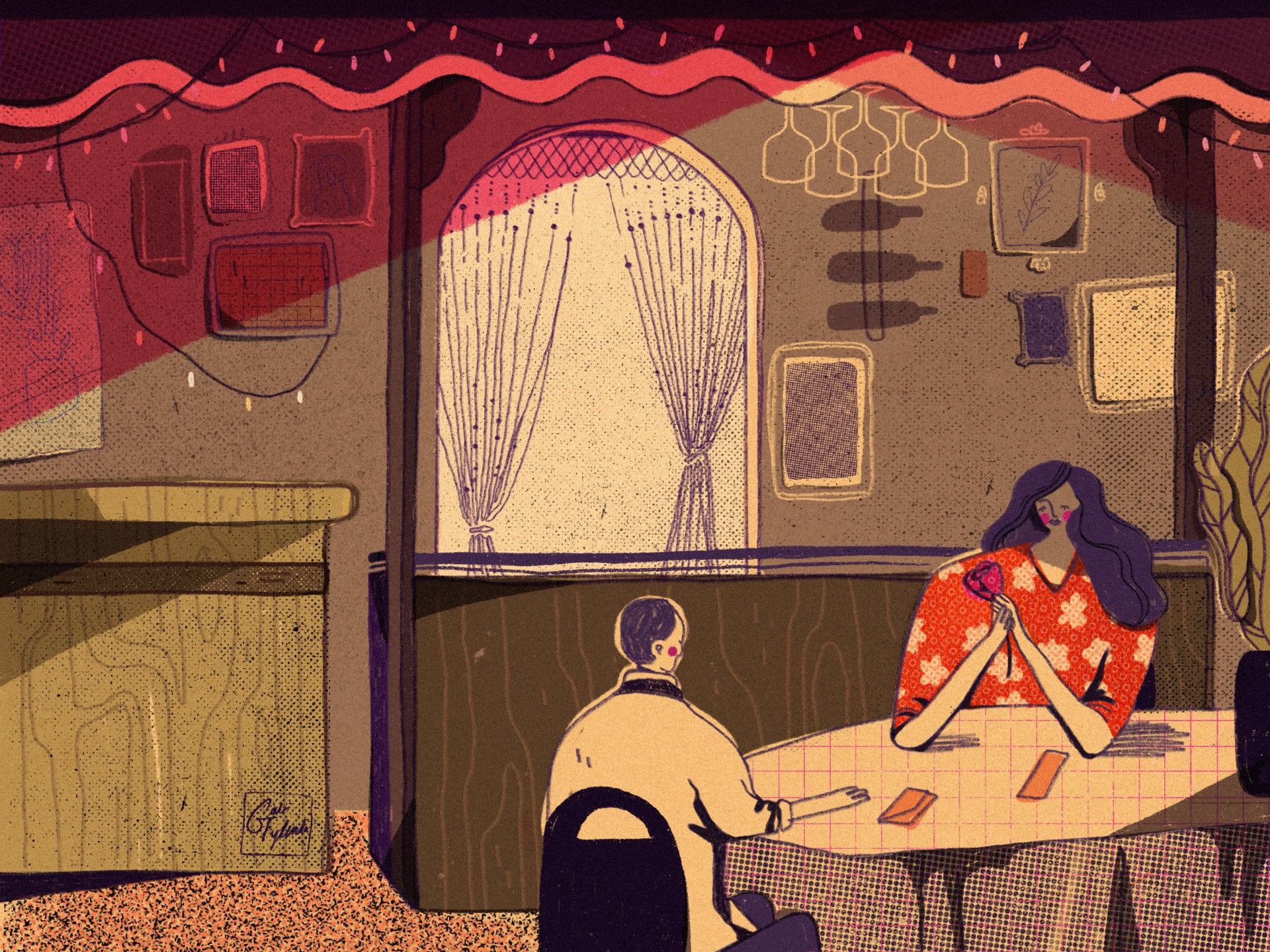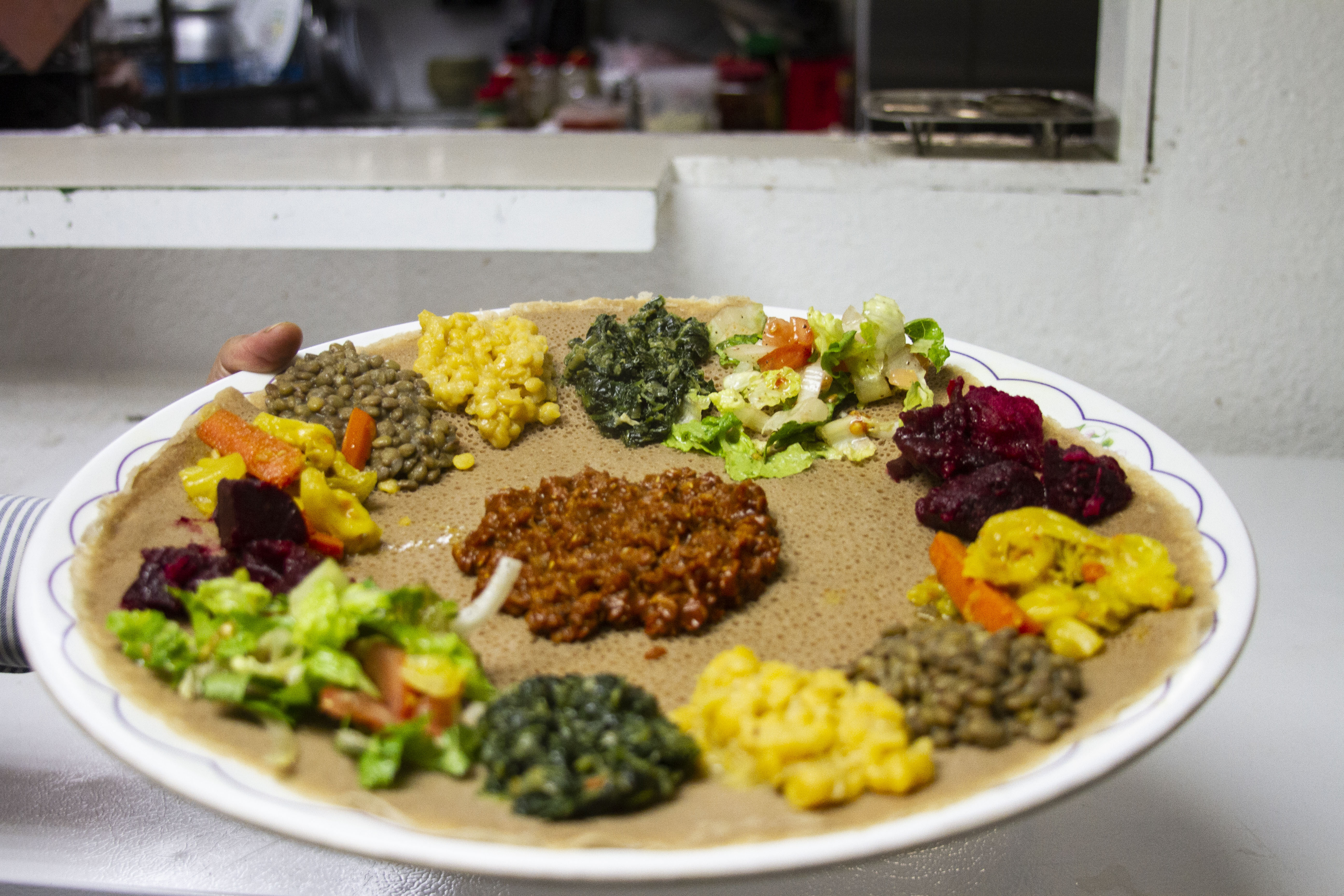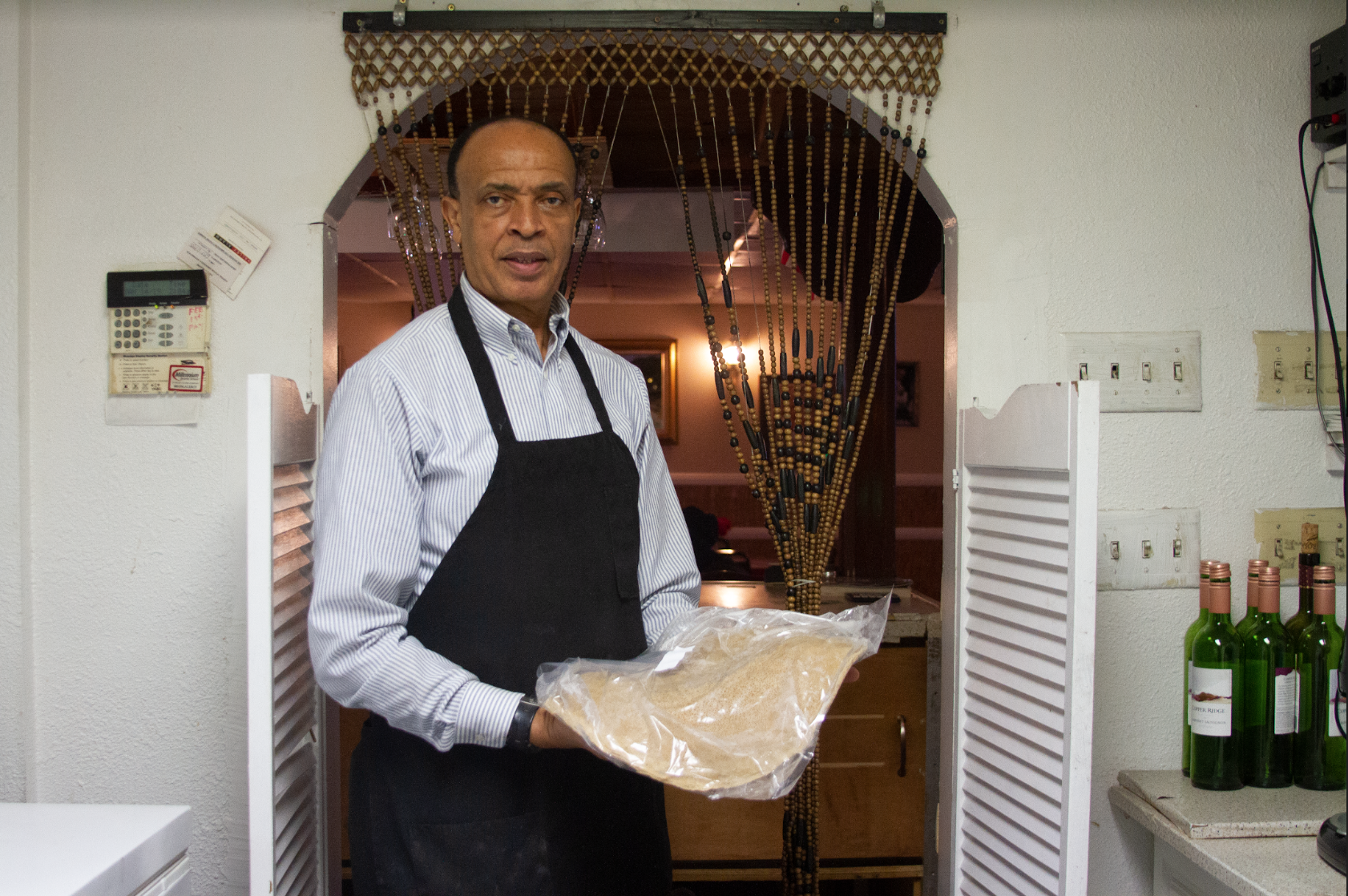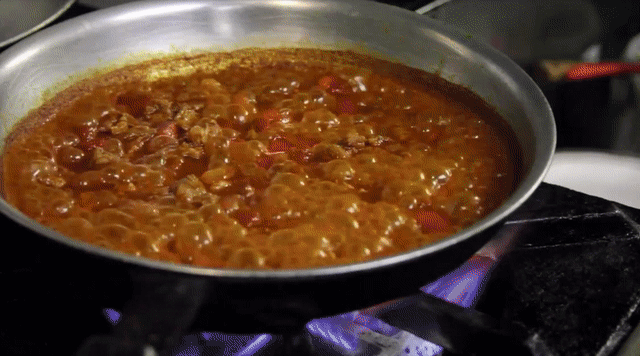
Fullerton, Calif. | January 2019
Finding love and fulfilling a dream: An Ethiopian man’s life after escaping war
Mehari Woldesessie said he’d be dead if he stayed behind in his home country. About 30 years ago, he escaped a civil war in Ethiopia with a dream to open a restaurant. Now he owns one in Anaheim.
Finding Love And Fulfilling A Dream: An Ethiopian Man's Life After Escaping War

Finding Love And Fulfilling A Dream: An Ethiopian Man's Life After Escaping War
Mehari Woldesessie can remember the first day he stepped off the plane in America. It was December of 1997, and he was about to meet his future wife for the first time. As he passed through the gate at Los Angeles airport, Woldesessie saw her waiting for his arrival with a flower.
“I feel her face was changing to kind of reddish. Yeah, something like that. I saw that feeling. I can’t tell you her feeling, but, you know, you can see her face. It’s happiness. You see happiness. Both sides, we were happy,” he said.
That very night, he said, they decided to get married. They now live in Corona and have a daughter and a son.
Before settling in California, Woldesessie spent nine years of his life residing in both Slovenia and Canada to escape a civil war in Ethiopia that left three of his brothers dead.
In 1961, a 30-year struggle for independence began between the Ethiopian government and Eritrean separatists. Rebel groups decided to overthrow the Ethiopian government, setting in motion a civil war.
At the age of 18, Woldesessie left Ethiopia on an academic scholarship based in Slovenia, where he earned a degree in chemical engineering. When he finished school, he said, the situation between Eritrea and Ethiopia had worsened.
Fearing he would become another victim to the war, Woldesessie applied for asylum to the United Nations. He moved to Canada for four years, and for the first time, he opened a restaurant with the help of a partner. But it didn’t pan out as he had hoped.
After coming to Southern California, Woldesessie spent time working as a chemist for several food and pharmaceutical companies, but in 2016, he decided to become his own boss and finally fulfill the dream of restaurant success he had always envisioned.
“When I was 14 years old I was thinking to have a restaurant. I have a dream. So that dream has come true now. Now I see it,” he said.
Woldessessie, who is now 57 years old, is the owner and chef of Abyssinia, an East African restaurant in Anaheim. He works long hours every day, cooking and serving traditional recipes to bring a piece of his home back for his customers to experience.

A veggie combo on injera bread is served at Abyssinia, Jan. 15, 2019.

Mehari Woldesessie, owner of Abyssinia, holds a bag of injera bread, Jan. 14, 2019.

Mehari Woldesessie, owner of Abyssinia, cooks a traditional East African meal, Jan. 15, 2019.
He gives special attention and care to each plate that goes to his customer. He takes his experience in labs as an engineer and applies precise measurements to the food, he said, formulating the food into a state of perfection.
“See in the kitchen it’s chemistry. For example, you put onion, after you cook, it change color to brown not brownish but little brownish. And then you add what? Whatever you need, like a meat, water — this is chemistry, it’s a chemistry.”
Woldesessie rarely leaves the restaurant to ensure the food’s quality is consistent, and keeps close attention to the bell by the door that signals new customers have arrived. He is eager to greet them with a smile and welcome them as if they were family arriving to his home dining room.
“When customer comes, you see the face; first they see the face. If you have happy or not. If you’re not happy, you can’t do a good job. Forget it. No quality. Nothing. Ugly. And people, they run away from you,” Woldessesie said. “If you don’t have passion, forget it; don’t come even close because you lose, you lose.”
When he’s not in the kitchen at Abyssinia, Woldesessie teaches children how to speak his native language at the local YMCA. He said he believes all children, including his own, should feel connected to their roots.
“Of course they’re Americans you know. They grow happier. They have their own (language). But when they go back home, if they have a little bit language they can speak, they can communicate with our family back home. That’s the main thing,” Woldesessie said.
It took more than 25 years for him to open Abyssinia and he plans to expand the business. Though there is not yet an inauguration date for a new restaurant, he trusts working hard will get him there.
“If you work hard you can make it a hundred percent. There is no question,” Woldesessie said. “I wake up every day at 5:00 morning. I have to do what I’m supposed to do.”
When he decided to open his own restaurant in Anaheim, he said people thought he was crazy for taking the risk and leaving his job as an engineer.
But for Woldesessie, money is not important. What matters most, he said, is the customer.
“I (rather) see Yelp review. People, what they talk about me,” Woldesessie said. “That’s very important.”
Woldessies can still recall the pain of leaving his family behind decades ago in Ethiopia, he said, but his passion for cooking traditional East African food and love for his family has led him to call Orange County his home.
“When I came to Orange County that’s the right choice for me. Orange County is what I see is opportunity. Land of opportunity,” Woldesessie said. “if you work hard, really you can make it what you want. Whatever you want you can make it.”
FOLLOW US #NEXTGENRADIO
ABOUT NEXTGEN RADIO
California State University, Fullerton
College of Communications
7055 Folsom Boulevard, 2600 Nutwood Ave., CP-450, Fullerton, CA 92831
STUDENTS TALK
